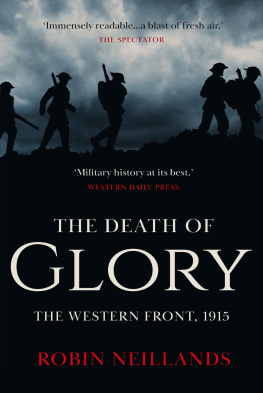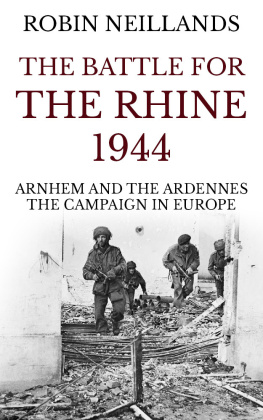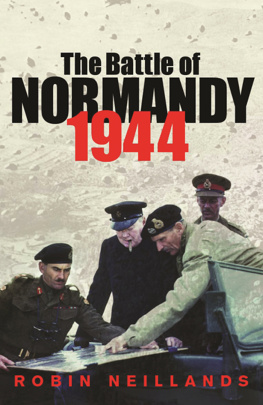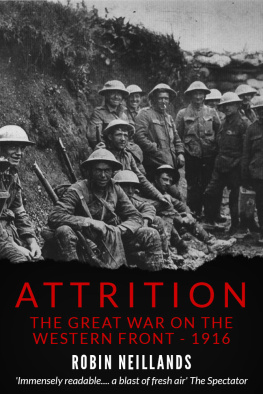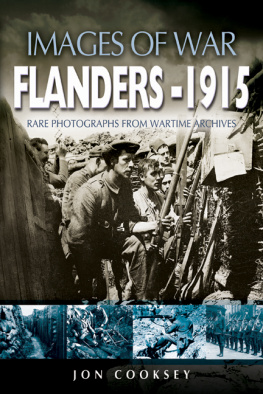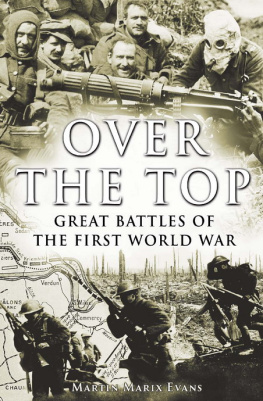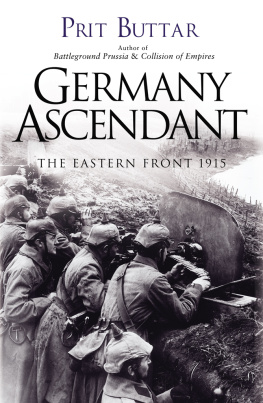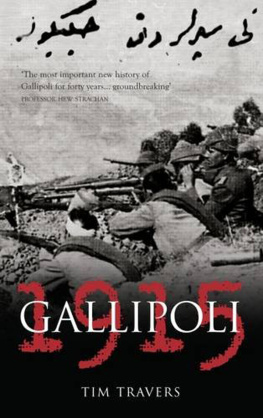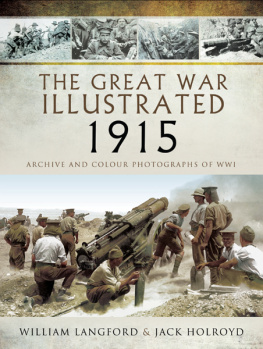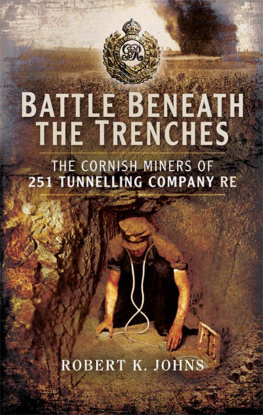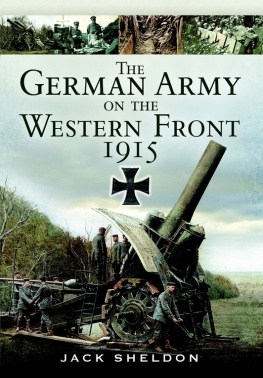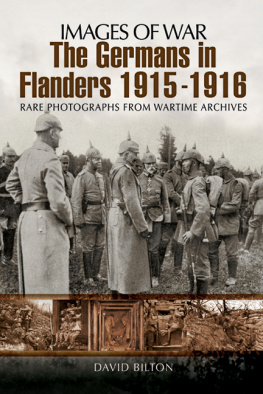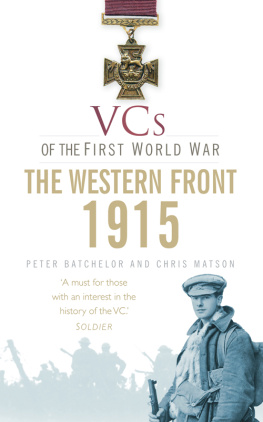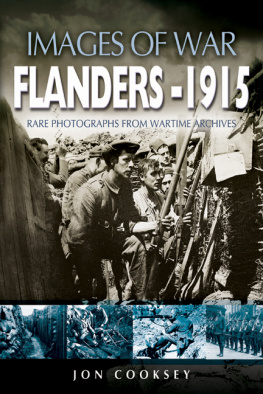The Death of Glory
The Western Front 1915
ROBIN NEILLANDS
Robin Neillands 2013
Robin Neillands has asserted his rights under the Copyright, Design and Patents Act, 2001, to be identified as the author of this work.
First published in 2006 by John Murray.
This edition published in 2018 by Lume Books.
This one is for Imogen Patricia Walker Born 1 September 2005
With much love from her grandfather
'Only the dead have seen the end of war'
Plato
Table of Contents
About This Book
During the 1960s, forty years after the First World War, two events struck heavy blows against the fragile reputations of the First World War generals, and in particular against that of the British generals. One was the advent of Joan Littlewood's Stratford East musical production Oh , What a Lovely War . The second was the publication of Alan Clark's Great War history The Donkeys , published by Hutchinson in 1961.
The Donkeys has been in print ever since, and the remark that inspired the title, an alleged exchange between General Ludendorff and an aide, quoted in Field Marshal Falkenhayn's Memoirs , that the British soldiers were 'lions led by donkeys', has long since passed into common currency. As for Oh , What a Lovely War , the play was subsequently filmed and has been regularly presented by professional and amateur dramatic companies all over the country in the last five decades, playing to packed houses, convinced audiences and general applause.
That these two presentations, the play and the book, have muddied the waters of Great War history to the detriment of the generals is a proven fact. Every Great War historian, academic or popular, knows that however strong and well founded his defence of the First World War generals might be, one TV or local performance of that entertaining musical play puts the generals back in the dock, at least as far as the general public is concerned ... and so it is for The Donkeys , a detailed and damning indictment of the Great War generals' character and competence, written with style and considerable verve.
This present book concentrates on the charges levelled against the generals in The Donkeys and arises from the fact that Clark's history is almost entirely concerned with the battles and events of 1915 - just one year in a four-year-long war and a year which, as the military historian Gary Sheffield remarks, 'remains something of a forgotten year as far as the Western Front is concerned'. (1)
This seems to be true, and that alone is somewhat surprising, for 1915 was a very difficult year for the Entente powers - France, Britain and Russia - and therefore worthy of much closer attention. As the Official History remarks, 'The twelve months following the close of the battles of First Ypres in October and November 1914 brought little but disillusion and disappointment.' (2)
This disillusion and the various disasters that marked out that disappointing year cannot be entirely confined within that single, twelve-month time span. Battles and campaigns do not work like that; they arise from what happened before and contribute, for good or ill, to what follows. On the other hand, the events of 1915 provide a link with the recent past and lead on towards those that followed, while providing experiences that largely relate to that year alone. The chief effect of the 1915 battles was to destroy what was left of the British Regular Army; this army had mustered just eleven divisions in August 1915 and most of these had gone by the end of 1915.
The other effect was on the general public. In August 1914 the British people had rushed to volunteer, many worried that this war would be 'over by Christmas' before they had a chance to take part in it. That rush for glory subsided in 1915, when these eager volunteers, especially those in the Territorial Force, were gradually committed to battles that culminated in the battle of Loos.
Among the deaths of 1915 we must include the death of glory, of any idea that modern war was anything like the popular image of conflict, one where bayonets glint in the sun, generals gallop about on white horses and the skid of bagpipes fills the air as the infantry go forward. All this was gradually seen to be a complete illusion. When wounded men on stretchers, fresh from the Western Front, carpet the forecourt of London's mainline stations, their bodies caked in mud, any notion of glory swiftly disappears. The notion that war was glorious vanished during the disastrous battles this book will describe.
The cause of those various catastrophes in 1915 lay deeper, not least in the pre-war unwillingness of the British people and government to understand the nature of modern war and make adequate preparations for it, should it ever arise and they opt to engage in it. Nor should it be forgotten that at the start of 1915 the British Army had been engaged in this new and massive war for just five months.
The results of this pre-war failure to understand modern warfare could not be made good in five months and were fully felt during 1915. Added to these errors was the contradictory order given to Field Marshal Sir John French, commander of the British Expeditionary Force (BEF) on his departure to France in August 1914: This order, given in full in the Appendix, directed him to cooperate closely with Britain's French allies but not to hazard his force, which was an entirely independent, British command. Advice on how the field marshal should reconcile these conflicting objectives was lacking - unlike French pressure to conform to French wishes, which was constant.
This book concentrates on the Western Front and the battles fought there in 1915 by the BEF and, at least to a certain extent, by the BEF's comrades-in-arms in the French and Belgian armies. That point made, the Western Front cannot be seen in isolation; the war grew in scale and went on elsewhere. War expanded steadily in 1915, to Italy, Gallipoli and Serbia, to Salonika and Mesopotamia and most notably in Russia. To concentrate on just one theatre of war in 1915, albeit the most important one, without some reference to the others, is to present the narrow view and bias the conclusion.
Nor is it fair to allege that the Allied generals on the Western Front and the 'powers that be' in London and Paris were simply acting like donkeys in 1915. Certainly, the popular impression is that the generals were butting their heads against the Western Front defences as if there was no other way to break through them, while ignoring the possibilities of strategic warfare by attacking elsewhere or developing technical innovations, such as the tank. As we shall see, this impression is totally false; by Christmas 1914, strategic moves and technological improvements were already in hand.
Essentially, the problem for the British generals was time. By the New Year of 1915, they had simply not had the time to make up the pre-war shortages in men, kit and materiel , or time to develop either new weapons or a strategic plan. All this would take time, and what could they do in the interim but fight on, doing the best they could in very difficult circumstances?
Doing their best was all the Western Front generals could do in 1915, and the bloody battles of Neuve Chapelle, Second Ypres, Aubers Ridge, Festubert and Loos, five somewhat neglected BEF encounters, are therefore carefully evaluated in this book. These battles saw a gradual escalation in the Western Front fighting, while the second battle of Ypres in the spring of 1915, which is mainly remembered for the German gas attack with which it opened, also saw the end of the professional career of General Horace Smith-Dorrien, one of the better of the First World War generals, a man destroyed by the malice of his senior commander. The character and capabilities of the Allied commanders will be covered in this book, since these personal aspects are closely linked to the battles and the way in which they were fought.
Next page
